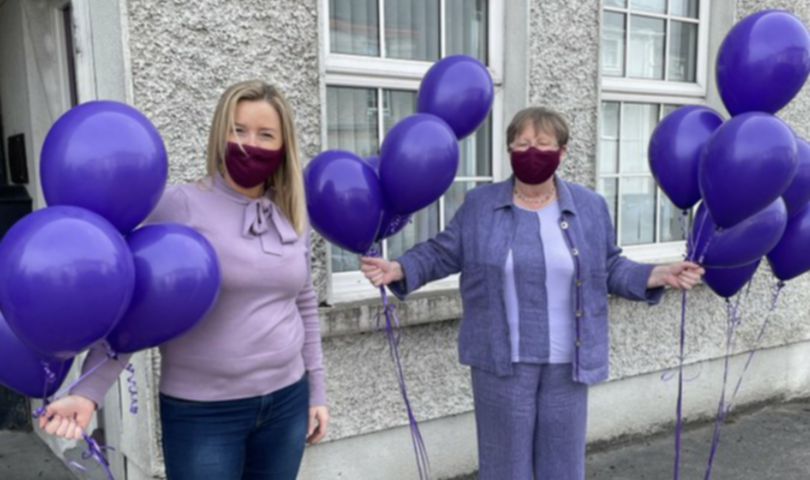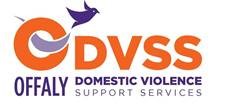Sponsored Content
At Bord Gáis Energy, we’re more than just an energy supplier. We’re a partner to our SME customers helping them to run and grow their businesses every day. In this series, we spotlight some of our valued customers, sharing details of their organisation. This month we feature Anne Clarke, manager at Offaly Domestic Violence Support Service (ODVSS). The charity provides support and services at a local level for victims of domestic violence and their children.
What are the origins of Offaly Domestic Violence Support Service CLG?
Offaly Domestic Violence Support Service was founded in 1997 by a group of volunteers, particularly a mother who had lost a daughter to domestic violence. She and her family didn’t want anyone else to go through the same.
The organisation was established founded to support women and tackle the stigma. We were originally Offaly Women in Crisis, and in 2008 the name was changed to demonstrate our commitment to being all-inclusive.
People don’t realise that there are many forms of family violence: for example, from an adult child to a mother, or between brothers and sisters, or from same sex marriages. We support all victims. We started with a group of volunteers, and when demand for our services increased we took on paid staff and became a company limited by guarantee.
What type of services do you provide?
Our main goal is to encourage people to come forward and seek help. We offer one-to-one support at our centre in Tullamore and we operate a confidential helpline. For people who cannot visit our office, there is an outreach service where ODVSS staff meet clients in safe appropriate venues in the community. We are also campaigning for societal and legislative changes that will lead to the elimination of violence and abuse, but we need to be able to talk about the issues.
For those pursuing legal options, we offer court accompaniment, which involves providing emotional support before and during the court process. We also have peer support groups - predominately for women at the moment – which are a safe space for victims to talk about their experiences. Most recently we started our children support programmes.
Children are invisible victims of domestic abuse and we run programmes at schools and local community groups providing information sessions and raising awareness. Separately, we offer education programmes for secondary school students, giving talks to students about the importance of healthy relationships, raising awareness about sexting, and the implications of sending nude photographs or being pressured to send them.
We work closely with emergency departments and companies, helping them to look for the signs of abuse. We talk to HR managers or employers and train them on the signs to look out for and to create a safe space for employees to disclose the abuse.
There is a high level of trust between hairdressers and their clients, and we offer information sessions for hairdressers, barbers and beauticians to identify signs of abuse, and encourage them to have our leaflets on their premises.
We are also working now on an Ethnic Minority development project in counties Laois, Offaly, Longford, Westmeath and Roscommon. We are seeking champions within these communities to raise awareness, so they know their rights and receive support.
How has the pandemic impacted your services?
Every year we have seen an increase in our services, and 2020 intensified the problem of domestic violence. The lockdown meant victims were now 24/7 with their abusers. We are extremely concerned for the safety of those in continued confinement, and we are receiving more calls, texts and messages through our social media accounts. In 2019 we had 180 clients, and in 2020 that number increased to 245. The number of restraining orders also rose to 160 last year from 98 in 2019.
What advice do you give to people experiencing domestic violence?
You do not need to remain in an abusive relationship. If you are a victim, or if you are even Googling ‘what is domestic abuse?’ or are thinking something is not right, please phone your nearest centre. There are multiple options available - accommodation, psychological, legal, financial and counsel support centres. Try to get advice, and if you feel your life is at risk, call the Gardaí.
What funding supports does ODVSS receive?
We are funded by Tusla, the child and family agency, and the Department of Justice. We have also received grants from The Giving Circle of Ireland and we receive other grants too. The pandemic has affected our fundraising events so we depend on online donations. Our experience is that it is hard for us to raise money through donations.
Society still blames the victim in a blind-sided way. If you know someone who died to suicide, or have met someone with cancer, you can sympathise and donate to those charities. For us is difficult to reach those extended audiences because the victim usually does not tell family or friends that they suffer from domestic abuse.
How do you see Offaly Domestic Violence Support Service developing in the coming years?
We need a national proactive plan to address domestic abuse. We need everyone to come on board - companies, schools, communities, friends and families. We need to come together as a society to solve the problem and have a common response by hospitals, GPs, teachers and Gardaí.
We would love to be able to provide safe homes for victims of abuse. We would like to run a full-time service and resource the staff better. At the moment, we rent a premises and I hope in the future that we have a proper building.
We would like to have the resources to keep responding to those in need, to support them and empower them. We would like to bring the perpetrator into focus, and to break that shaming and blaming culture towards the victim.
Eighty per cent of our clients are women. We try to help them to be independent and sustainable, but we are never going to solve the problem on our own. We need a national strategy from government and to recognise that different approaches are needed.
We need to create safe houses and reform the family law courts. Most importantly, we all need to walk towards the same goal - encouraging victims to disclose the abuse and then having the resources to support them.
How can people support ODVSS?
You can follow us on social media, visit www.odvss.ie, and donate through by searching ‘Offaly Domestic Violence Support Service’ on www.idonate.ie.
Photo: June Kelly (left), chairperson ODVSS, and Molloy Buckley, founding member and former chair ODVSS, launching National Awareness Day Go Purple to highlight the issue of domestic abuse in Ireland













